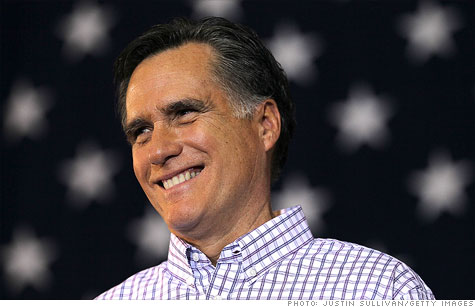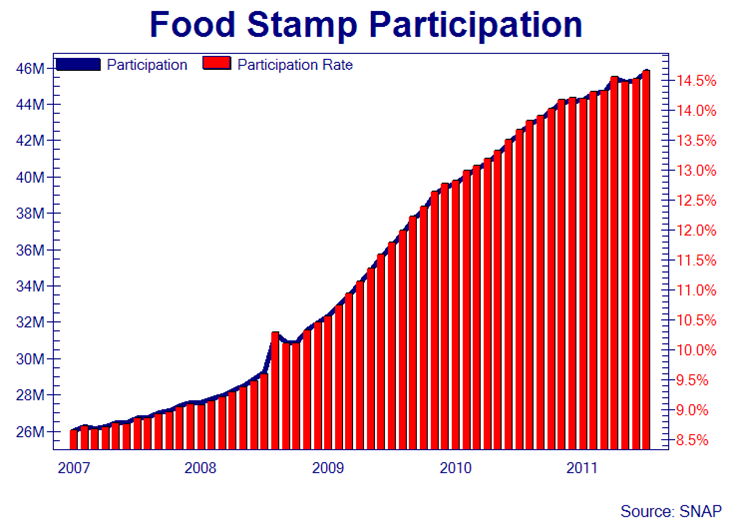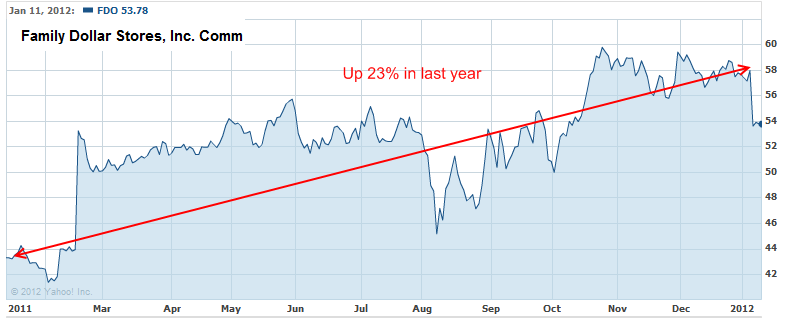(For more campaign news, see ELECT.)
Jan. 12 (Bloomberg) -- Republican front-runner Mitt Romney, who has cast the 2012 presidential campaign as “free enterprise on trial,” finds himself in a struggle over the role of capitalism in an unlikely place: within his own party.
As Romney attempts to frame a general election contest with President Barack Obama on the economy, some of his rivals for the Republican nomination have made many of the same arguments against him that Democrats have.
Texas Governor Rick Perry accused Romney of practicing “vulture” capitalism during his days as a private equity executive. A film bankrolled by supporters of former House Speaker Newt Gingrich charges that Romney’s firm, Bain Capital LLC, eliminated jobs and turned “the misfortune of others into their own enormous financial gain.” These are complaints the Obama campaign will be ready to reinforce during the campaign.
“We’ve understood for a long time that the Obama people would come after free enterprise,” Romney told reporters aboard his campaign plane yesterday during a flight to South Carolina, site of the next primary. “Little surprised to see Newt Gingrich as the first witness for the prosecution.”
With the U.S. economy the dominant concern of voters, Obama heads into November’s election seeking to portray himself as a champion of middle-income Americans who is confronting Wall Street and Republican obstructionists in Congress. The president signaled his re-election message with a Dec. 6 address in Kansas, saying the nation is at “a make-or-break moment for the middle class.”
Market-Oriented
Kent Hughes, director of the Program on Science, Technology, America and the Global Economy at The Woodrow Wilson International Center for Scholars in Washington, dismissed Romney’s portrayal of Obama as political hyperbole.
“I don’t really see free enterprise being put on trial by any of the candidates, including President Obama,” he said. The president “looks, as previous administrations have, for business to play a leading role in everything from job-creation to long-term productivity growth.”
Republican criticism of Romney’s business record could prove damaging if it depresses enthusiasm for the party’s eventual nominee among the white working class.
“Obama is never going to convince those white working- class voters to stay home rather than vote for Romney,” said Dan Schnur, a campaign adviser to Republican presidential candidate John McCain’s first bid for the White House in 2000. “Some of that rhetoric from Gingrich and Perry can.”
Key to Victory
White working-class voters have become increasingly important in the Republican electoral coalition, said Ruy Teixeira, a political demographer and senior fellow at the Center for American Progress in Washington.
A Republican nominee “literally can’t win without a very large supermajority from the white working class,” Teixeira said. “It’s the key to their victory. The stakes couldn’t be higher.”
Republicans succeeded in the 2010 midterm congressional elections by gaining a 30-percentage-point lead among white working-class voters, Teixeira said. Obama won election in 2008 even with an 18-point gap among those voters because of support from minority groups and college-educated whites.
Seizing the Moment
Romney seized his moment before a national television audience on the night of his New Hampshire primary victory to define his differences with the Democratic president in terms of fundamental economic principles, portraying Obama as a practitioner of “the bitter politics of envy” who would “turn America into a European-style entitlement society.”
“This president takes his inspiration from the capitals of Europe,” Romney told his supporters.
Romney promised instead to “lead us down a different path, where we are lifted up by our desire to succeed, not dragged down by a resentment of success.”
For now, it is Romney’s Republican rivals who are stoking resentment and providing recorded comments that Democrats could turn against Romney should he become the party’s nominee.
Companies such as Romney’s Bain Capital “come in and loot people’s jobs, loot their pensions, loot their ability to take care of their families,” Perry said at a town hall meeting in Fort Mill, South Carolina, on Jan. 10. “They’re just vultures sitting out there on the tree limb waiting for the company to get sick. And then they swoop in, they eat the carcass, they leave with that, and they leave the skeleton.”
Hard Times
With the move to South Carolina, the Republican presidential race is shifting to an electorate that has faced more difficult economic times than many other states.
The November unemployment rate in the site of the first nominating caucuses, Iowa, was 5.7 percent. In New Hampshire, which hosted the first primary election, it was 5.2 percent.
By contrast, the jobless rate in South Carolina was 9.9 percent in November, the most recent month for which state-level figures are available. In the states that host the next nominating contests, unemployment in Nevada is 13 percent and in Florida it is 10 percent.
David Woodard, a Republican political consultant and director of the Palmetto Poll at Clemson University in South Carolina, said the attack on Romney runs counter to the ideological outlook of voters in the state.
The South Carolina electorate, particularly in Republican primaries, “really embraces free markets and capitalism,” Woodard said.
Blessing or Curse
The primary-season attack on Romney’s record in business could work to his advantage in a general election campaign if it allows his campaign to perfect a response, Schnur said.
“If they come up with a very effective answer, this is a blessing -- if they don’t, it’s going to hurt even more,” said Schnur, now director of the Unruh Institute of Politics at the University of Southern California.
Romney’s response based on free-market principles “is a little bit abstract” for voters in the November general election, he said. “You’ve got argue it in terms of jobs.”
Carter Eskew, a strategist for Democrat Al Gore’s 2000 presidential campaign and now a managing director at the Glover Park Group in Washington, said Obama’s allies were likely to reprise the attacks on Bain if Romney becomes the nominee.
“My guess is the Obama campaign has already filmed a lot of people who will talk about how Romney’s business enterprises resulted in their being fired,” Eskew said.
--With assistance from John McCormick and Lisa Lerer in South Carolina. Editors: Mark Silva, Mark McQuillan.







